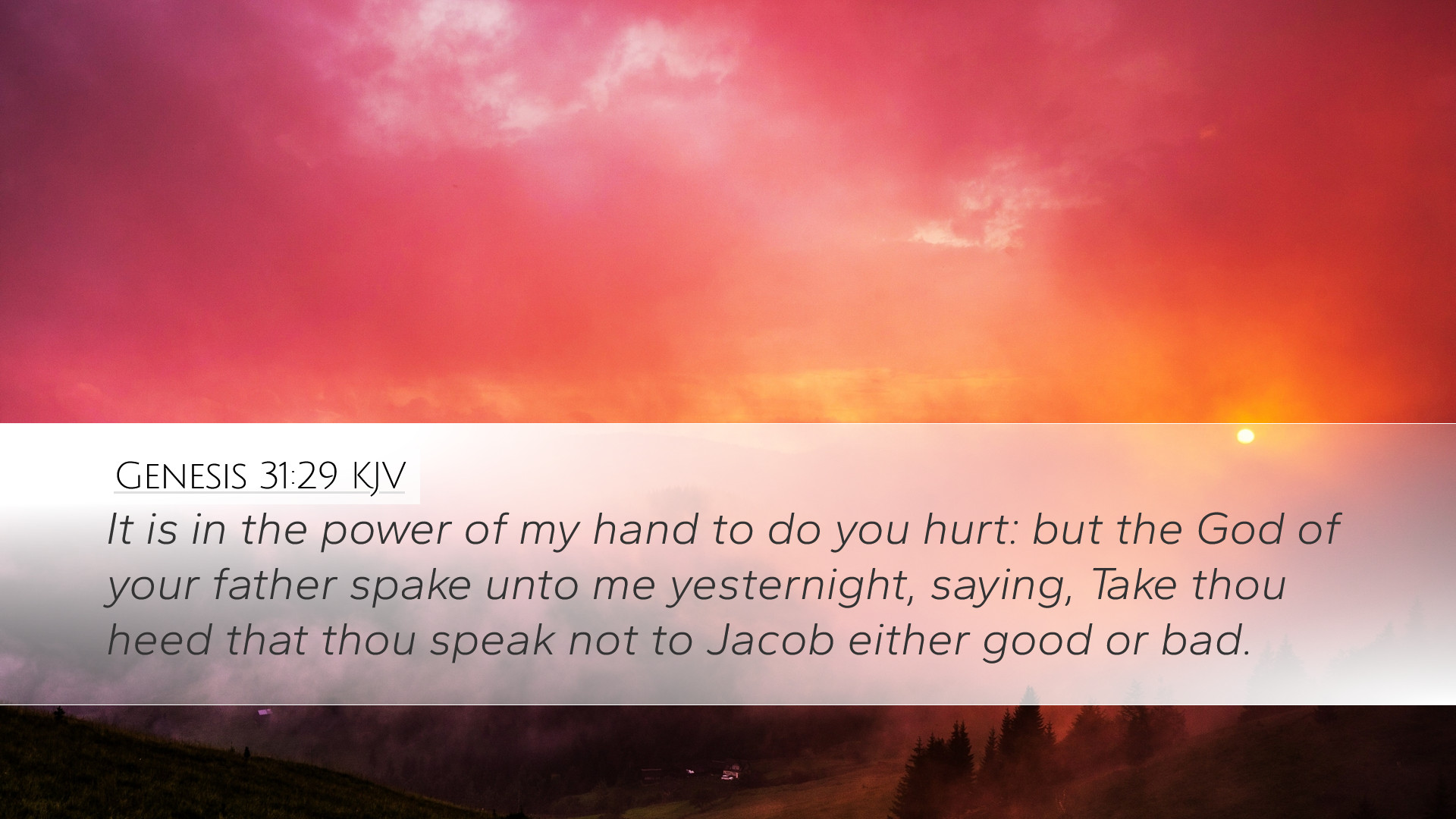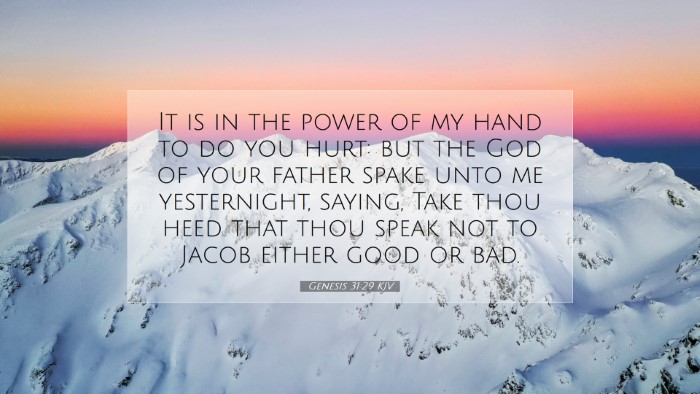Commentary on Genesis 31:29
Verse Text: "It is in the power of my hand to do you hurt: but the God of your father spake unto me yesternight, saying, Take thou heed that thou speak not to Jacob either good or bad." (Genesis 31:29 KJV)
Introduction
This verse is a significant moment in the narrative of Jacob's departure from Laban, providing insights into the divine protection Jacob experienced and Laban's recognition of God's authority. Several profound themes emerge: the nature of power, divine intervention, and the moral obligations of believers.
Commentary Insights
1. The Nature of Power
Albert Barnes reflects on Laban's understanding of power and authority. He acknowledges his own ability to harm Jacob, indicating that Laban is aware of the socio-political implications of his authority. However, his acknowledgment comes with an important caveat—he recognizes that his power is ultimately limited by God's will. This highlights the biblical theme that human authority is subordinate to divine sovereignty.
2. Divine Warnings
Matthew Henry emphasizes the significance of God's warning to Laban. The night before this encounter, God spoke to Laban, instructing him not to harm Jacob. This revelation underscores the theme of God's providence, showing that He actively intervenes in human affairs. Henry notes that this divine warning serves as a protective measure for Jacob, illustrating God's faithfulness to His covenant.
3. The Role of Fear
Adam Clarke explores Laban’s fear of God as a critical aspect of this narrative. Laban's fear reflects a deep awareness of God’s authority and the consequences of contradicting divine instructions. Clarke posits that this fear may also be indicative of Laban's recognition of his own shortcomings and limitations in the face of God's power. Thus, it serves as a cautionary reminder that those who oppose God or His chosen ones do so at their peril.
4. Implications for Believers
This verse holds significant implications for believers today. It serves as a reminder that while individuals may experience threats or opposition in their lives, God's protection prevails. The acknowledgment of God’s sovereignty should infuse believers with courage, even amidst potentially harmful situations.
Application for Pastoral Ministry
- Pastors can draw on this passage to teach the congregation about reliance on God’s protection.
- This narrative provides a platform to discuss the balance between human authority and divine sovereignty.
- Encouragement to trust God’s guidance in times of conflict or uncertainty can be drawn from Laban’s encounter with God.
Lessons for Theological Reflection
- The nature of divine intervention and its implications for understanding God's nature in relation to humanity can be explored further.
- In theological discussions, this passage invites reflection on God's providence in human affairs.
- The tension between human free will and divine sovereignty is a profound topic that can emerge from this text.
Conclusion
The verse Genesis 31:29 reveals a pivotal moment in Jacob's life, illustrating the tension between human authority and divine oversight. The commentary from Henry, Barnes, and Clarke collectively emphasizes the need for believers to recognize God's ultimate authority and to trust in His protective oversight, particularly when faced with adversities or opposition. This rich biblical narrative serves to strengthen the faith of theologians, scholars, and laypersons alike, encouraging a deeper understanding of God’s unwavering presence in our lives.


